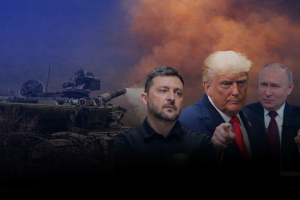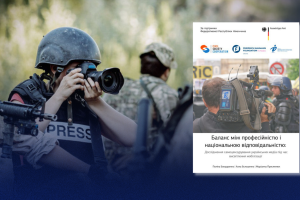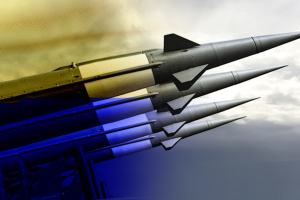Victory of Trump in the U.S. presidential elections: probable consequences for global politics and Ukraine

On November 1015, 2016 the Ilko Kucheriv Democratic Initiatives Foundation conducted an expert survey “Victory of Trump in the U.S. presidential elections: probable consequences for global politics and Ukraine”. The objective of the survey was to determine the opinions of experts regarding the probably results in foreign policy that will be dictated by Trump’s term in office as U.S. president. A total of 32 Ukrainian foreign policy experts were surveyed.
- For experts surveyed and the absolute majority of sociologists the victory of Donald Trump was unexpected. Only 5 experts admitted that they were sure of the victory of Trump, while 27 said they predicted the victory of the candidate for the Democrats Hillary Clinton.
- The following reasons for Trump’s victory can be highlighted post factum: the dissatisfaction of the political elite (which Trump was opposed to) – 12 references; better mobilization of his electorate (11 references) and a high level of rejection of the candidate for the Democrats) – 10 references. The people’s dissatisfaction with the policy of Obama, his economic, medical and social program were also weighty arguments – 9 references; understood language, appeal to the emotions of Americans in Trump’s campaign (7 references) and the overall feeling that matters are developing in the wrong direction, which was reflected in his campaign, the position of a “silent majority” regarding migrants (6 references), etc.
- Surveyed experts feel that the policy of Trump somewhat differs from the policy of the Obama administration regarding cooperation with NATO (17 responses) and the EU (18 responses), regarding events in the Middle East (18 responses), as well as conducting a policy towards Ukraine (18 responses) and Russia (19 responses). At the same time, the policy as it pertains to fight against international terrorism will not change in principle (2/3 of surveyed experts).
- Respondents feel the U.S. will most likely not reject the international obligations it has assumed or agreements it has made, however opinions are divided in half on whether or not isolationism of America will grow on the international arena.
- More than half of the experts surveyed feel that relations between the U.S. and Russia will somewhat improve in light of the fact that the Trump administration will try to circumvent the problems where possible conflict situations with Russia may arise. However, four experts pointed to the fact that after attempts at dialog between the U.S. and Russia and their failure, the relations between the two countries will significantly worsen.
- As to the sanctions against Russia, they will not see any changes if the latter does not change its behavior. More than 2/3 of the overall number of surveyed have such an opinion. Be that as it may, if to speak about diplomatic and macrofinancial support of Ukraine, the position of experts is somewhat less consolidated and a third of the surveyed presume that assistance could be reduced. The picture regarding military assistance where 4 experts presume a decrease in its volumes, 5 – increase and another 14 do not expect any significant changes. It is also worth noting a significant part of experts who are not yet ready to make any predictions that the Trump administration will support Ukraine.
- The greatest threats on the international arena are the unpredictability and impulsiveness of Trump (11 references), as well as the probable shake-up of the system of international law and security (8 references); a decrease of activity in NATO and the support of allies of the U.S. in Europe (7 references); the dilettantism of Trump in foreign policy, a weak administration (6 references); excess pragmatism in foreign policy, which will prevail over democratic values (5 references) and a growth in isolationism of the U.S. (5 references) and the victory of Trump could become a case of success for the European ultra-right wing (5 references).
- Regarding Ukraine such threats lie in the plane of a military conflict with Russia. Among them are reduction (annulment) of sanctions against Russia, prospects of a compromise with the Kremlin at the expense of Ukraine’s interests (10 reference); reduction in diplomatic, macroeconomic and military technical support of Ukraine (10 references), as well as removal of the Ukrainian issue to the margins of U.S. foreign (7 references).








